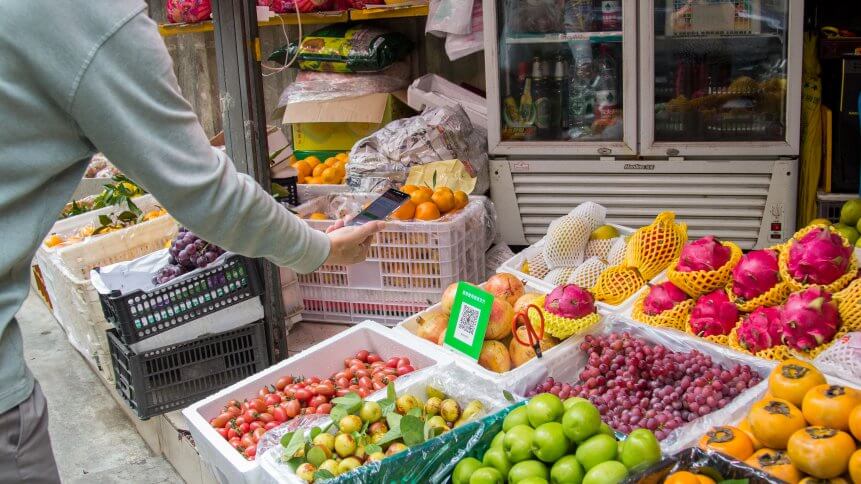Is the UK prepared to be a cashless society?

- 79% of consumers think more education is needed to help people navigate the shift to digital payments
- 63% of people aged 65 and over have yet to use digital payments
- Almost two-in-five surveyed consider cash a backup in case their card is lost, stolen, or fails
As the world moves towards becoming a cashless society, not everyone can navigate the shift to digital payments. While the COVID-19 pandemic did force a quicker adoption for cashless transactions in many countries, the reality is, there are still some groups that are at risk of being left behind.
Today, a cashless society would be an ideal format for most governments around the world. Not only will it solve some cash flow and crime problems like counterfeit bills and such, but it will also enable businesses to transact with more visibility, avoiding the problems that many companies face when dealing with huge amounts of physical cash.
A cashless society is basically an economic state whereby all financial transactions are not conducted by physical banknotes or coins. The transactions happen online or through digital devices that enable the transaction between parties.
In Europe, Sweden is one of the first nations to almost completely evolve into a cashless society. Statistics from Sweden’s central bank show that from 2010 to 2020, the proportion of Swedes using cash has fallen from 39% to just 9%. The use of cash is mostly limited to making small payments, or used by the elderly. In shops and cafés, it is much more common to find the sign ‘Card only’ or ‘Cashfree’ than ‘Cash only’ as in many other countries.
In the UK, a Marqeta-commissioned survey of 2,000 consumers showed that 25% have yet to use digital payments – a figure that rises to almost two-thirds (63%) of people aged 65 and over. However, there are signs of change, as 21% reportedly used digital payments for the first time during the last year. Since the pandemic, four-in-ten (41%) have been refused when trying to pay with cash in the past year and 65% feel it’s becoming harder to take cash out.
Amid rising adoption and enthusiasm for innovations, 83% of respondents expressed concern that the shift to cashless could exclude the most at-risk in society, demonstrating the need to ensure no one is left behind. The research also highlighted the need for greater education around the benefits of digital payments, to ensure that at-risk groups are not left behind, with 79% of respondents saying education is needed to help people reliant on cash to adopt other forms of payment.
According to Ian Johnson, SVP, Managing Director, Europe, Marqeta, digital payments offer several benefits for society — from lowering fraud and other financial crime to the environmental benefits, not to mention the fact that it is much safer than carrying around cash. But to go cashless, he believes educating society is key to showing everyone how to live in a world without cash. Otherwise, society may be at risk of leaving the most vulnerable groups behind.
“As an industry, and a society, we have a responsibility to support cash-only spenders to adopt digital payment options, by educating people of its benefits and through more inclusive product design, to ensure everyone can share in the benefits,” commented Johnson.
When delving into the reasons why consumers are still using cash, the survey found:
- Almost two-in-five (39%) surveyed consider cash a backup in case their card is lost, stolen, or fails.
- Nearly one-third (29%) surveyed believe they can keep better track of their spending with cash.
- 17% surveyed believe that using cash decreases their risk of fraud, saying they like to use cash as they think it is more secure than digital payments.
As such, banks need to ensure that they have better digital services to help consumers keep track of their spending, as well as providing secure digital wallet services to act as a backup when physical cards fail.
Interestingly, the survey also showed that there is also a growing appetite amongst consumers for new technology and innovation in payments. The survey showed:
- Almost half (45%) of respondents want to ‘pay by gesture’ and have a secret signal to authenticate payments as an added layer of security, instead of their PIN.
- 57% surveyed would be comfortable using a “super app”, like China’s WeChat, to make all their payments.
- 39% surveyed would be open to using asset tokenization to make big payments.
- One-in-ten surveyed believe cryptocurrencies are the future and are keen to invest in them.
“Banks must ensure that the benefits of their digital offerings continue to outweigh the benefits of cash,” added Johnson. “Providing consumers with features that help them to track their spending, as well as adding extra layers of security to minimize the risk of fraud, are critical to ease the transition to an increasingly cashless world.”










